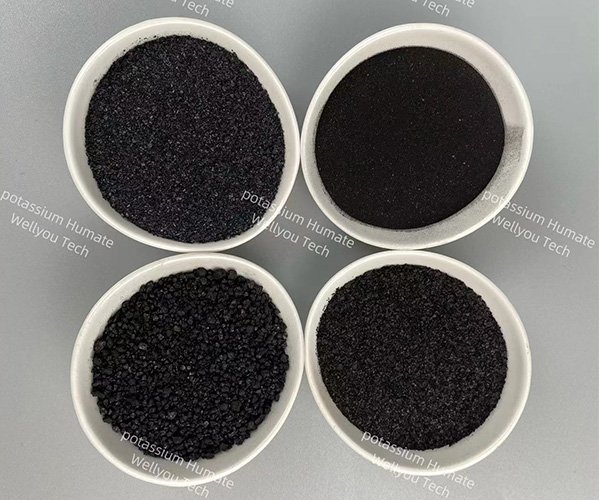In the quest for sustainable and productive farming, understanding the role of soil health is crucial. Central to this understanding are humic substances, particularly humic acid and fulvic acid. Both are natural components found in soil, peat, coal, and other organic matter, playing pivotal roles in soil fertility and plant growth. However, they each have unique properties and benefits that cater to different agricultural needs. Let’s delve into the differences between humic acid and fulvic acid and explore how each can be a game-changer for your farming practices.
Humic Acid: The Soil Conditioner
Humic acid is a powerful soil conditioner, primarily derived from decomposed organic matter. Its benefits are vast and profound, particularly in improving soil structure and enhancing nutrient uptake.
1. Enhance Soil Structure:
Humic acid helps in the formation of soil aggregates, which improve soil aeration and water retention. This is particularly beneficial in sandy soils, where water drainage can be a problem, and in clay soils, where compaction and poor aeration can stunt root growth.
2. Boosting Nutrient Retention:
One of the standout features is its ability to chelate nutrients, making them more available to plants. It binds with essential nutrients like iron, zinc, and manganese, preventing them from leaching away and ensuring that plants have a steady supply of these vital elements.
3. Stimulate Microbial Activity:
It serves as a food source for beneficial soil microbes. These microorganisms play a crucial role in breaking down organic matter, releasing nutrients in forms that plants can absorb. A thriving microbial population also helps suppress soil-borne diseases, promoting healthier plants.
Fulvic Acid: The Plant Energizer
While humic acid excels at conditioning the soil, fulvic acid works its magic directly on plants. Known for its low molecular weight and high oxygen content, fulvic acid can penetrate plant cells more easily, enhancing various physiological processes.
1. Enhanced Nutrient Absorption:
Fulvic acid acts as a natural chelator, binding to nutrients and facilitating their transport across cell membranes. This increased nutrient absorption translates to improved plant growth and higher yields.
2. Stress Resistance:
Fulvic acid helps plants cope with environmental stressors such as drought, salinity, and extreme temperatures. By enhancing the plant’s metabolic processes and increasing its antioxidant capacity, fulvic acid fortifies plants against adverse conditions.
3. Promoting Root Growth:
Fulvic acid stimulates root growth, leading to a more extensive and efficient root system. This not only improves the plant’s ability to uptake water and nutrients but also enhances its overall resilience and productivity.
Choosing the Right Product for Your Farm
Understanding the distinct roles of humic acid and fulvic acid is key to optimizing their benefits in your agricultural practices. Here are a few considerations:
For Soil Health:
If your primary goal is to improve soil structure and nutrient retention, humic acid is the way to go. Its long-term benefits to soil health will create a robust foundation for plant growth.
For Plant Health:
If you’re looking to boost plant vigor, nutrient uptake, and stress resistance, fulvic acid is your best bet. Its immediate impact on plant physiology can lead to noticeable improvements in crop performance.
Combined Approach:
Many farmers find that using both humic and fulvic acids in tandem provides the best results. This combination leverages the soil conditioning properties of humic acid and the plant-enhancing benefits of fulvic acid, creating a holistic approach to soil and plant health.
In conclusion, humic acid and fulvic acid each offer unique advantages that can significantly enhance agricultural productivity. By understanding their distinct properties and applications, you can make informed decisions that will lead to healthier soil, more resilient plants, and ultimately, better yields. Embrace the power of these natural substances and unlock the full potential of your farm!


